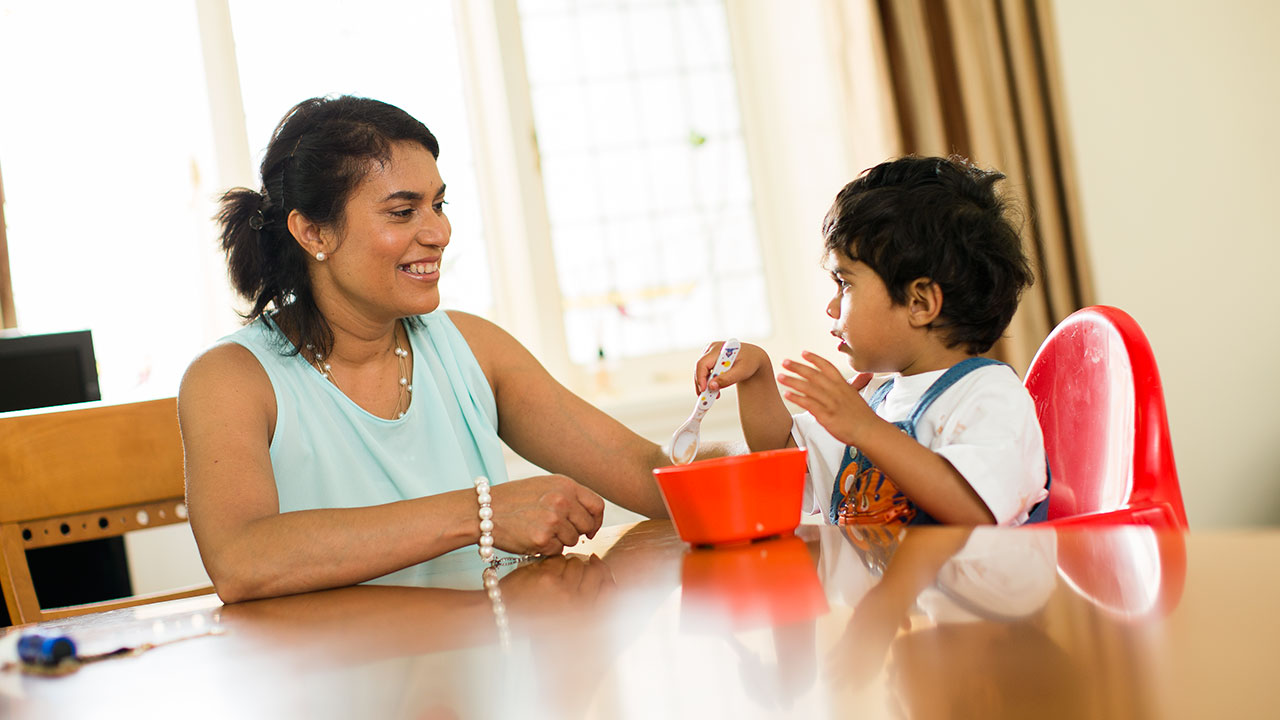Thriving in Co-Parenting Teenagers After Divorce
Coordinating co-parenting teens post-divorce demands clear communication, consistent rules, and putting your teenagers’ needs first. Manage conflicts by setting boundaries respectfully, actively listening, and problem-solving collaboratively. Encourage honest dialogues, respect, and trust-building. Coordinate schedules, support each other, and seek professional help when necessary. Building a strong foundation on these pillars can help you and your ex-partner create a healthy, stable environment for your teens.
Key Takeaways
- Prioritize teenagers’ emotional well-being through open communication.
- Establish consistent rules and boundaries for stability.
- Encourage mutual respect and support between co-parents.
- Seek professional help for challenges in co-parenting.
- Maintain a safe space for teenagers to express feelings and concerns.
Establishing Clear Communication Channels

To effectively co-parent teenagers after a divorce, prioritize establishing clear communication channels to guarantee both parents are informed and involved in their child’s life. Important boundaries are essential in maintaining effective communication. Start by setting boundaries for communication, such as preferred methods of contact and frequency of updates. Make sure that discussions remain child-focused and respectful, avoiding personal conflicts that can hinder progress.
Effective communication involves active listening and empathy. When discussing important matters concerning your teenager, listen attentively to the other parent’s perspective before responding. Acknowledge their thoughts and feelings, even if you disagree. Encourage an open dialogue where both parents feel heard and understood.
Regular check-ins and updates are vital for staying on the same page regarding your teenager’s well-being, school events, and social life. Use technology to your advantage by sharing calendars or creating a shared online platform for important information.
Setting Consistent Rules and Boundaries

Establishing clear communication channels lays a strong foundation for co-parenting teenagers after divorce, and it’s equally important to set consistent rules and boundaries to provide stability and structure for your teenager’s well-being.
Essential discipline is vital in maintaining a sense of normalcy for your teenager amidst the changes brought about by divorce. By enforcing boundaries consistently, you show your teen that despite the separation, expectations remain steady.
When setting rules, it’s important to discuss them openly with your co-parent to guarantee consistency in enforcement. Teens thrive on predictability and knowing what’s expected of them. Consistent rules also prevent confusion and reduce the likelihood of your teenager playing one parent against the other.
Prioritizing the Teenagers’ Needs
When focusing on prioritizing the teenagers’ needs post-divorce, it’s important to maintain a keen awareness of their emotional well-being.
From the teenager’s perspective, maneuvering life after their parents’ divorce can be challenging. They may experience a range of emotions such as confusion, sadness, anger, and even guilt. As a parent, it’s essential to acknowledge and validate these feelings, providing a safe space for open communication.
Parenting challenges may arise as teenagers try to adapt to the new family dynamic. It’s crucial to offer consistent support and understanding during this period of change.
Managing Conflict Effectively

When it comes to co-parenting teenagers after a divorce, managing conflict effectively is essential. Setting boundaries respectfully, practicing active listening techniques, and engaging in collaborative problem-solving can help you navigate disagreements with your co-parent.
Setting Boundaries Respectfully
To navigate conflicts effectively while co-parenting teenagers after divorce, it’s essential important to set boundaries respectfully and with clear communication. Establishing mutual respect between co-parents lays the foundation for healthy boundaries that teenagers can understand and follow.
When setting boundaries, it’s vital important to involve your teen in the process, allowing them to express their thoughts and concerns. This collaborative approach fosters positive communication and shows your teenager that their opinions are valued.
Teen independence is a key factor to take into account when setting boundaries. Encouraging independence while still providing guidance helps teenagers develop important life skills and decision-making abilities.
Clearly outlining the boundaries and consequences for breaching them can prevent misunderstandings and conflicts. Remember, boundaries should be reasonable and fair to both the teenager and the co-parents.
Active Listening Techniques
Engaging in active listening techniques is essential for managing conflicts effectively while co-parenting teenagers after divorce. Active listening involves not just hearing the words spoken but truly understanding the emotions and perspectives behind them.
To practice active listening, give your full attention to your co-parent when they’re speaking. Show empathy by acknowledging their feelings and avoiding interrupting or formulating your response while they’re talking.
Empathy building is a critical component of active listening. Put yourself in your co-parent’s shoes and try to understand their point of view, even if you disagree. Reflect back what you’ve heard to make sure you’ve understood correctly. This can help prevent misunderstandings and show your co-parent that you value their opinions.
Collaborative Problem-Solving
To effectively manage conflicts when co-parenting teenagers after divorce, fostering collaborative problem-solving skills is essential. Adopting a teamwork approach with problem-solving strategies can help navigate disagreements effectively. Encouraging effective communication and shared responsibility between co-parents is critical in finding common ground and resolving conflicts amicably.
When faced with a disagreement, approach the situation with a mindset focused on teamwork. Remember that both you and your co-parent share the responsibility of finding solutions that benefit your teenager. Utilize problem-solving strategies such as brainstorming together, considering various perspectives, and working towards a mutually agreeable resolution.
Effective communication plays a significant role in collaborative problem-solving. Clearly express your thoughts and actively listen to your co-parent’s perspective. By fostering open and honest communication, you can prevent misunderstandings and work towards sustainable solutions.
Encouraging Open Dialogue With Teenagers

Hey there, as your teenagers navigate life post-divorce, it’s important to promote honest conversations with them.
By fostering an environment of trust and understanding, you’re creating space for them to express their thoughts and feelings openly.
Encouraging open dialogue can strengthen your relationship with your teenagers and help them feel supported during this challenging time.
Promoting Honest Conversations
Encouraging open dialogue with your teenagers is vital for fostering trust and understanding in your co-parenting relationship after divorce. Building trust through honest communication lays the foundation for healthy interactions with your teenagers.
It’s essential to create a safe space where your teenagers feel comfortable sharing their thoughts and feelings without fear of judgment.
To promote honest conversations, actively listen to your teenagers without interrupting. Validate their emotions and experiences, showing empathy and understanding. Encourage them to express themselves openly, even if their opinions differ from yours.
Be honest and transparent in your communication, setting an example for them to do the same.
Acknowledging their perspectives, even if you don’t agree, can strengthen your bond and demonstrate respect for their autonomy.
Fostering Trust and Understanding
Creating a safe and open environment for your teenagers to express themselves freely is key to fostering trust and understanding in your co-parenting relationship after divorce. Building empathy and fostering respect are essential components of encouraging open dialogue with your teenagers.
Listen actively to their thoughts and feelings without judgment, showing them that their opinions are valued. Acknowledge their emotions, even if you don’t agree with their perspective, to validate their experiences. Encourage them to communicate openly by being approachable and willing to have difficult conversations.
Respect their boundaries and privacy while also setting clear expectations for respectful communication. Model healthy communication habits by resolving conflicts peacefully and demonstrating mutual respect with your co-parent. Establishing trust takes time, so be patient and consistent in your efforts to create a safe space for your teenagers to share their thoughts and feelings.
Coordinating Schedules and Activities

To effectively co-parent teenagers after divorce, it’s essential to establish a clear system for coordinating schedules and activities that works for both parents and the teenagers involved. Balancing extracurricular activities and family time can be challenging but vital for the well-being of your teenagers.
Sit down with your ex-partner and create a shared calendar where you can input all the important dates, school events, and extracurricular commitments. This way, everyone is on the same page, and conflicts can be avoided.
When it comes to coordinating school events and holidays, communication is key. Make sure to discuss in advance how you’ll handle holidays, birthdays, and other special occasions. Being flexible and open to compromise will go a long way in ensuring a smooth co-parenting experience.
Supporting Each Other as Co-Parents
When managing the complexities of co-parenting teenagers after divorce, providing mutual support as co-parents can greatly enhance your ability to provide a stable and nurturing environment for your children. Co-parenting strategies play an important role in this phase of your children’s lives. Communicate openly with your ex-partner, establish common rules and expectations, and present a united front to your teenagers. By working together, you can create consistency and reduce confusion for your children.
Emotional support is essential during this time. Listen to each other’s concerns without judgment, validate each other’s feelings, and offer encouragement. Recognize that both of you’re exploring uncharted territory, and it’s okay to seek help when needed.
Building trust is a cornerstone of successful co-parenting. Keep your promises, respect each other’s boundaries, and prioritize your children’s well-being above personal grievances. Providing guidance collectively ensures that your teenagers receive consistent messages and support as they navigate adolescence.
Seeking Professional Help When Needed
If you find yourselves struggling to navigate the complexities of co-parenting teenagers after divorce, don’t hesitate to seek professional help to guarantee your children’s well-being remains the top priority. Therapist support can provide a safe space to address co-parenting challenges and develop effective strategies to foster healthy relationships with your teenagers.
Family counseling offers a constructive environment where both parents can work together to communicate better, set boundaries, and establish consistent parenting approaches.
Parenting teenagers after divorce can be emotionally taxing and filled with unique challenges. A therapist specializing in family dynamics can offer valuable insights and tools to navigate these obstacles successfully. They can assist in improving communication between co-parents, resolving conflicts, and supporting your teenagers’ emotional well-being during this transformative period.
Frequently Asked Questions
How Do We Handle Dating and Relationships With Our Teenagers?
When handling dating and relationships with your teenagers, set clear boundaries and keep communication open. Balance freedom with supervision, allowing them to explore while ensuring their safety. Trust, respect, and guidance are key.
What Should We Do if One Parent Spoils the Kids More?
When one parent spoils the kids more, setting boundaries and establishing consistency is crucial. Communicate openly with your co-parent, agree on common rules, and enforce them consistently. This approach fosters harmony and stability for your teenagers.
How Can We Navigate Disagreements About Education Choices?
When addressing disagreements about education choices, remember to prioritize your teenager’s best interests. Respect school boundaries and involve them in decisions about extracurricular activities. Communicate openly, listen actively, and find compromises that support their growth and development.
Is It Okay for One Parent to Discipline the Other’s Child?
It’s essential to set boundaries and show respect when it comes to disciplining each other’s children. Effective communication and consistency in disciplinary actions will help maintain a united front and prevent conflicts in co-parenting after divorce.
What if Our Teenagers Play Us Against Each Other?
When teenagers play you against each other, it’s essential to set clear boundaries together. Communicate openly and present a united front. Discuss strategies to handle manipulation tactics and remember to prioritize your teamwork in co-parenting through this challenging phase.
Conclusion
In managing the challenges of co-parenting teenagers after divorce, remember to prioritize communication, consistency, and your teenagers’ needs.
Conflict is inevitable, but handling it effectively and encouraging open dialogue with your teens can make a world of difference.
By coordinating schedules, supporting each other, and seeking help when needed, you can create a healthy and thriving co-parenting dynamic that benefits everyone involved.
Stay strong, stay connected, and remember that you’re not alone in this journey.

Chad Adan Kace, a young dad from Vermont, shares his parenting journey with a touch of humor and lots of love. Father to a lively baby, he explores the joys and challenges of fatherhood through his stories.







